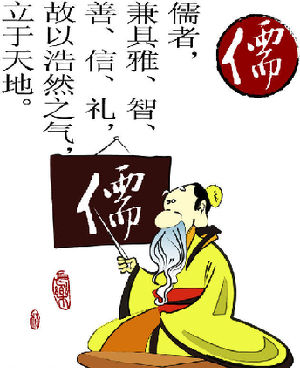There is also a political parallel between modern Europe and the Confucian ideal of governance. The European parliament in Brussels, unlike Europe’s national governments, resembles a council of sages – pragmatic technocrats, not charismatic personality politicians.
For Love of Learning and Family
Next, let’s look at the European educational system. Reforms continue, but Europe is now tilting toward unification of its fragmented national educational systems. China unified its scholarly examination system as early as the Han Dynasty over 2,200 years ago. And it did it again in 1952 when New China established the national higher education entrance examination.
The 1999 Bologna Accords, which aim to unite all European educational systems under one higher education format, will result in better assessment and thus the promotion of ability, not privilege, as the major mechanism by which governments and businesses select and promote workers.

It is important not to underestimate the importance of privilege and “birth right” to Europe’s old models of education and employment.
Though the French Revolution of 1789-1799 was instrumental in the dismantlement of feudal, aristocratic and religious privileges across the whole European continent, France has continued, right through to the current century, to discriminate in its education system. Graduates of its grandes écoles dominate the business and political elites in the country.
Germany’s system, while not favoring the privileged to the extent that France’s does, has a three-tier school system that locks students into limited career paths straight out of primary school. Do badly in primary school, and you’ve already blown your chances at a top-flight career. Europe needs Bologna to work in order to level the educational playing field.
China’s historic Confucian examination system was different. It guaranteed anyone – be they peasant or aristocrat – a fair go at landing a top career post. The canons of Confucianism, moreover, have instilled a love of learning in the hearts of ordinary Chinese. Europe has a lot to learn from China in how it values education as one of life’s main priorities.
One of principal Confucian concepts is Xiao, filial piety. Put more colloquially, Xiao means that children should respect and care for their parents throughout their lives. In the past century Europe outright rejected this premise. It seemed the continent was intent on severing connections between the generations as quickly as possible – parents were not obliged to pay for their children’s education, and the young were encouraged to “break away” from their parents as early as possible. National government stepped in to fill the void; students and youth received generous grants for studies and ample living allowances, while the elderly found themselves in nursing homes. The homes were free; but that didn’t fill in for the lack of family.
China is different. While economic development is raising tensions in some families as the young move to big cities to hunt for high-paying work, as a rule, family is still holy in China.
Thankfully, many European governments have been rethinking their role in family ties. I’ve even noticed rising talk of “filial piety” among my European friends. It’s a positive sign.
